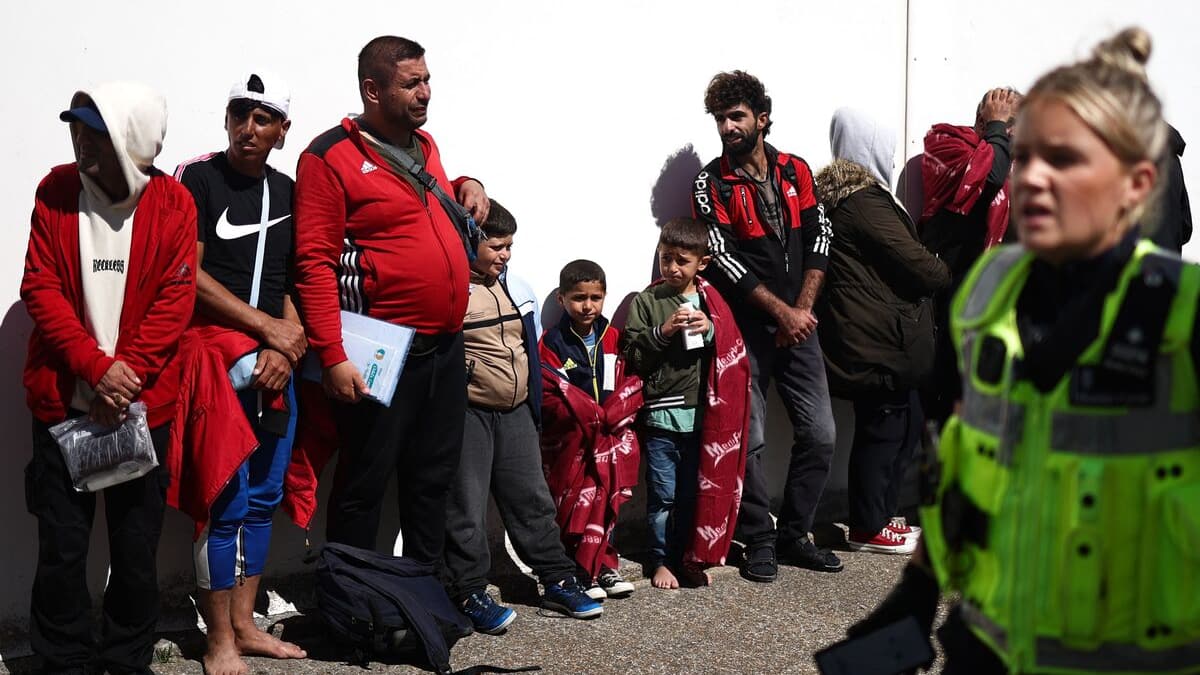
They were forced to buy their own equipment or sent to the front without proper training: in Russia, relatives of reservists were called up to fight in Ukraine to denounce the “chaos” of mobilization imposed by the Kremlin.
• Read also: Medvedev denounces the “cowardly traitors” who fled to avoid fighting in Ukraine
• Read also: Vladimir Putin is seriously ill according to persistent rumors
• Read also: The G7 wants to prevent Russia from “starving” Ukrainians this winter
The Ministry of Defense announced at the end of October that this mobilization launched on September 21 had ended, putting an end to an operation that shed a harsh light on the army’s logistical difficulties.
We had to buy uniforms, equipment and medicine ourselves. “In training, it was a complete mess, everything was very poorly organized,” said Tatiana, whose nephew was summoned in early October in Krasnogorsk, northwest of Moscow.
“All we show on (Russian) TV is so-and-so. We have the impression that the decision to mobilize was taken suddenly and no one was ready,” adds this woman, who wants to hide her family name for fear of reprisals, in a country where critics of the army risk imprisonment.
Anna, a resident of Ivanchevka, northeast of Moscow, is still amazed at the crowd of her son-in-law. Both have family in Ukraine.
“Our relatives are under bombs in Dnipro and will have to go and kill in our homeland,” she breathes with tears in her eyes. He is against war. But he has no choice: front or prison.
Shortly before the mobilization, Russian deputies tightened penalties for those who were mobilized and who refused to go and fight: up to ten years in prison.
According to Anna, her son-in-law spent almost 100,000 rubles (more than $ 1,000), seven times the minimum wage in Russia, on a bullet-proof vest, uniform, warm clothes, shoes and other equipment.
On social networks, calls for donations to help recruits buy such equipment, which in theory should be provided by the military, multiplied.
Brief training
Faced with the scale of the dysfunction, it is impossible to ignore reality: in mid-October, three Russian military correspondents, known for their support of the offensive against Ukraine, published the enlightening story of soldiers mobilized in the 27th century. Mechanized brigade.
These men, mostly mobilized in the Moscow region, “trained only twice between September 23 and October 3” before being sent to the front where they suffered heavy losses, according to Anastasia Kachivarova, one of these reporters.
They were deployed in the Lugansk region (eastern Ukraine), which Moscow annexed in September, and found themselves under fire from their own and enemy artillery, according to the reporter.
This information was confirmed to AFP anonymously by a relative of one of the survivors.
The spokesman for Russian President Dmitry Peskov, who was questioned by AFP during a press conference, indicated that the Kremlin would “check” this information. Opening an investigation by the Military Prosecution.
Among the dead was the 27th Brigade Timur Ismailov, a 33-year-old computer scientist who should have been exempted from service in the army.
“He was mobilized on September 23, found himself in the combat zone on October 7,” Konstantin Erokhin, his lawyer, Konstantin Erukhin, said on his Telegram channel and died on October 13 under mortar fire.
According to him, the Military Commissariat did not receive in time the list of bank employees exempt from mobilization drawn up by the Central Bank and on which Timur Ismailov appeared.
‘correct’ photography
The Kremlin admitted making “mistakes” in the context of mobilization with cases of mobilization suffering from serious illnesses, being over-age or being parents of many young children.
Nearly 10,000 people who were mistakenly mobilized were sent home, according to Andrei Kartapolov, the head of the lower house of the parliament’s defense committee.
Mr. Peskov emphasized, however, that “active measures taken to rectify the situation are giving initial positive results”.
To improve the supply of soldiers with equipment, the Kremlin privately announced the creation of a “coordination council” on October 21 headed by Prime Minister Mikhail Mishustin.
These drifts in no way reinforced the anxiety of young men who fear conscription even without military experience, many of whom fled to border countries, or even further afield, particularly to Turkey.
So much so that former Russian President Dmitry Medvedev raised the issue on social media on Friday, calling these men “cowardly traitors” on Telegram.







